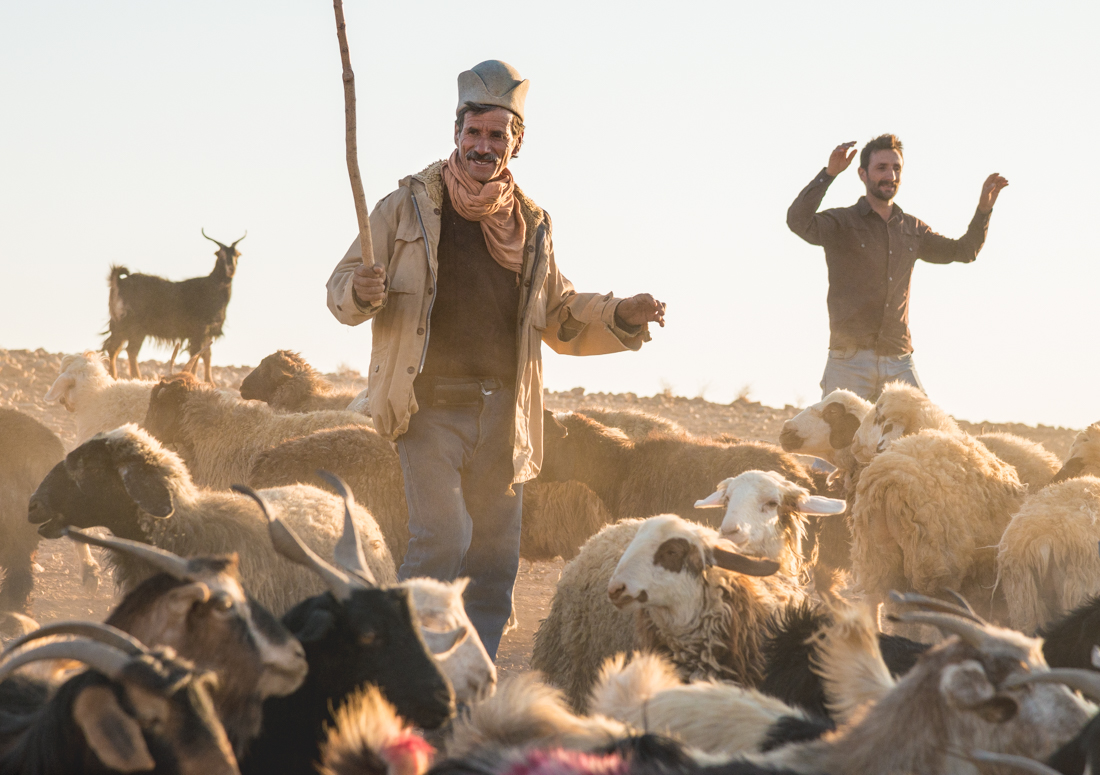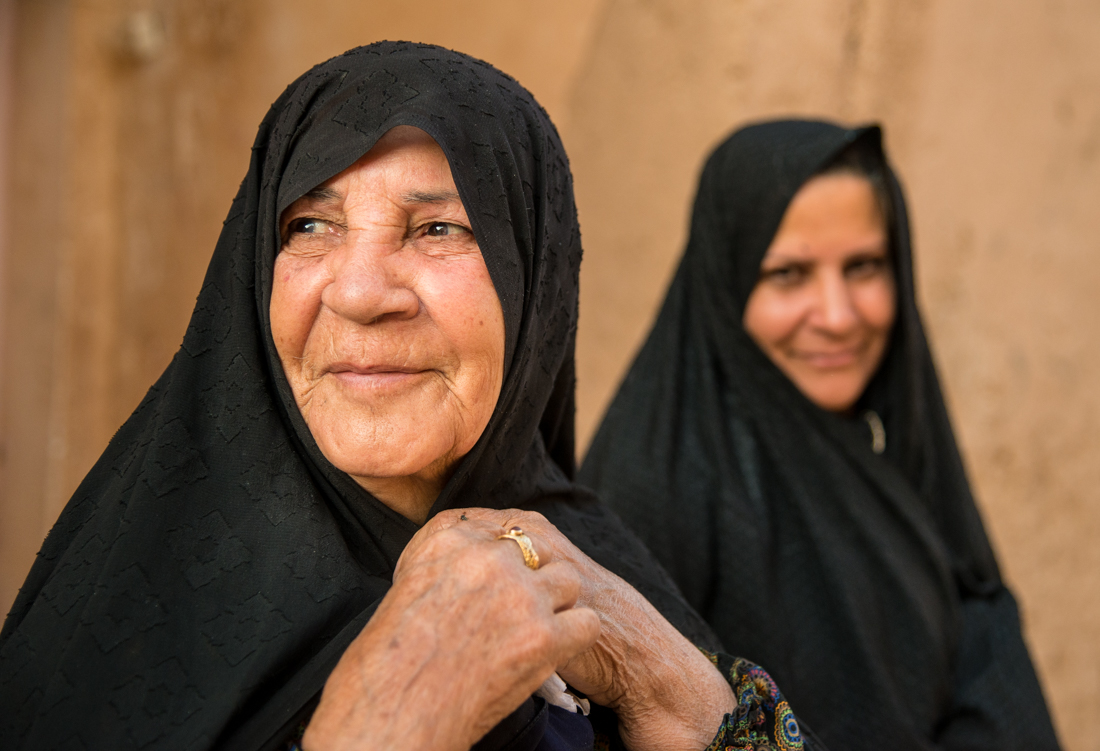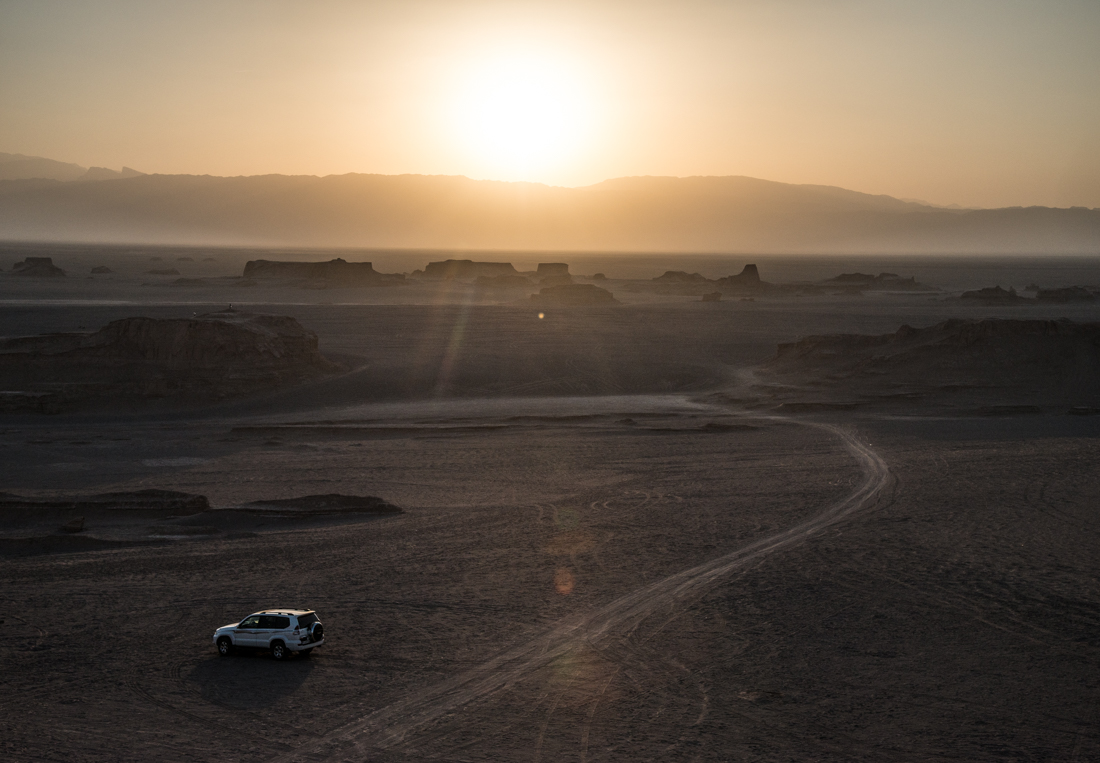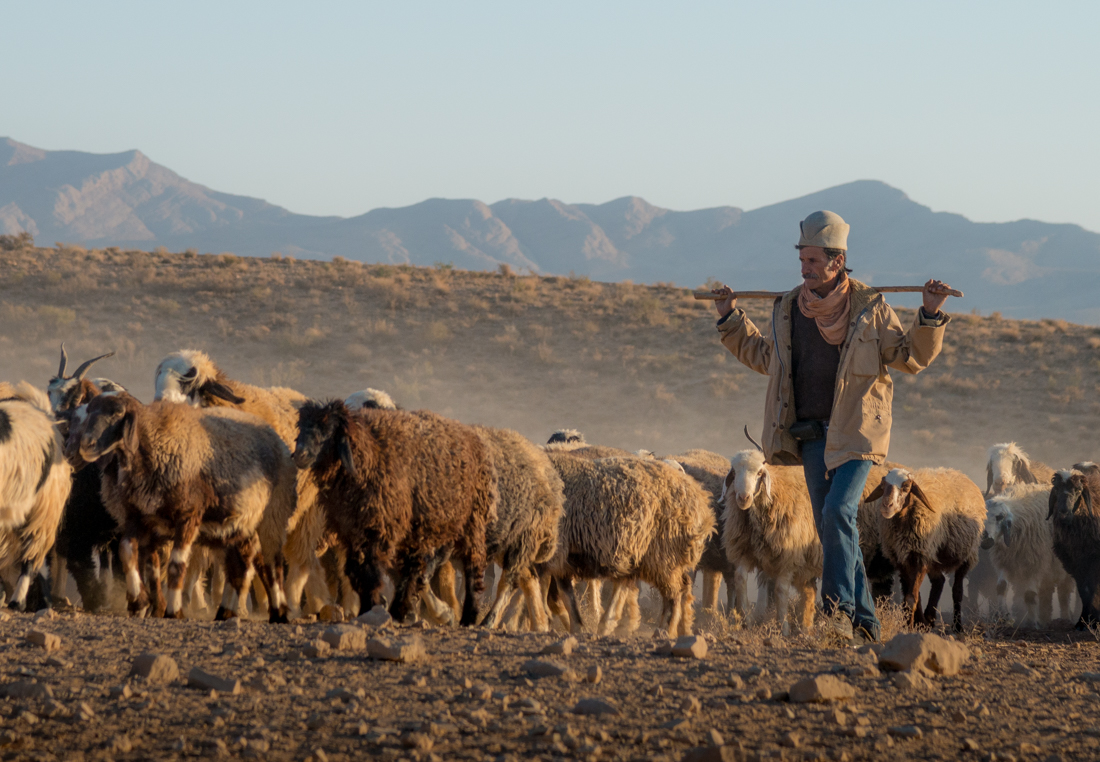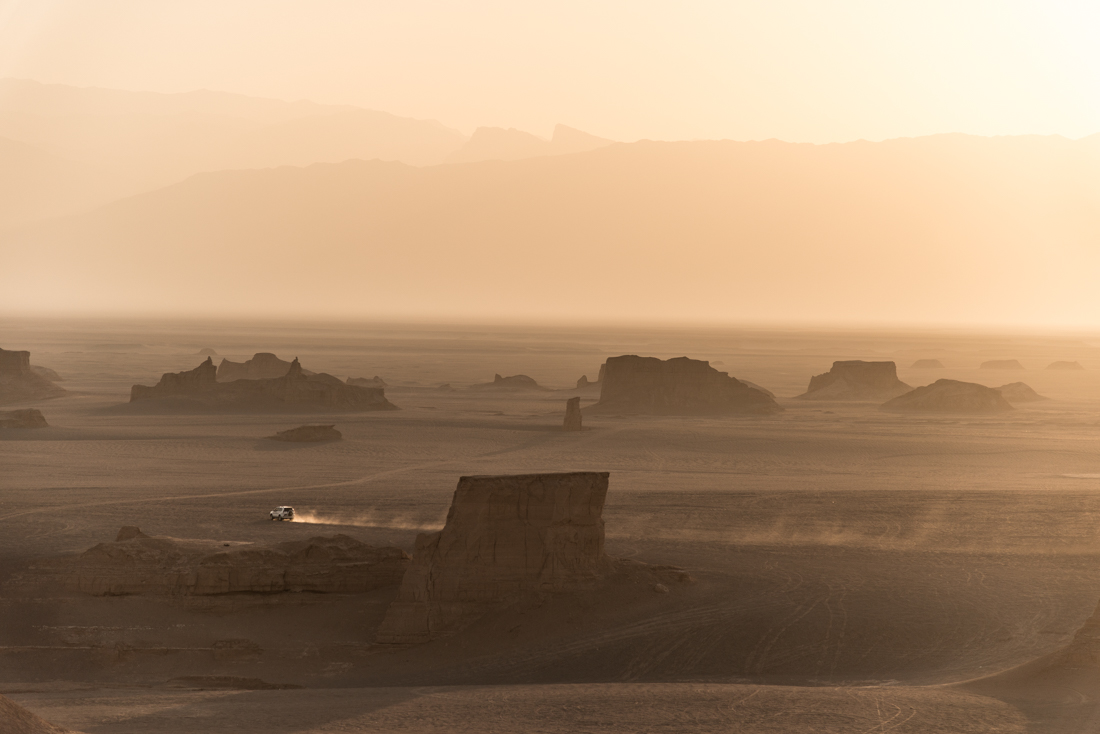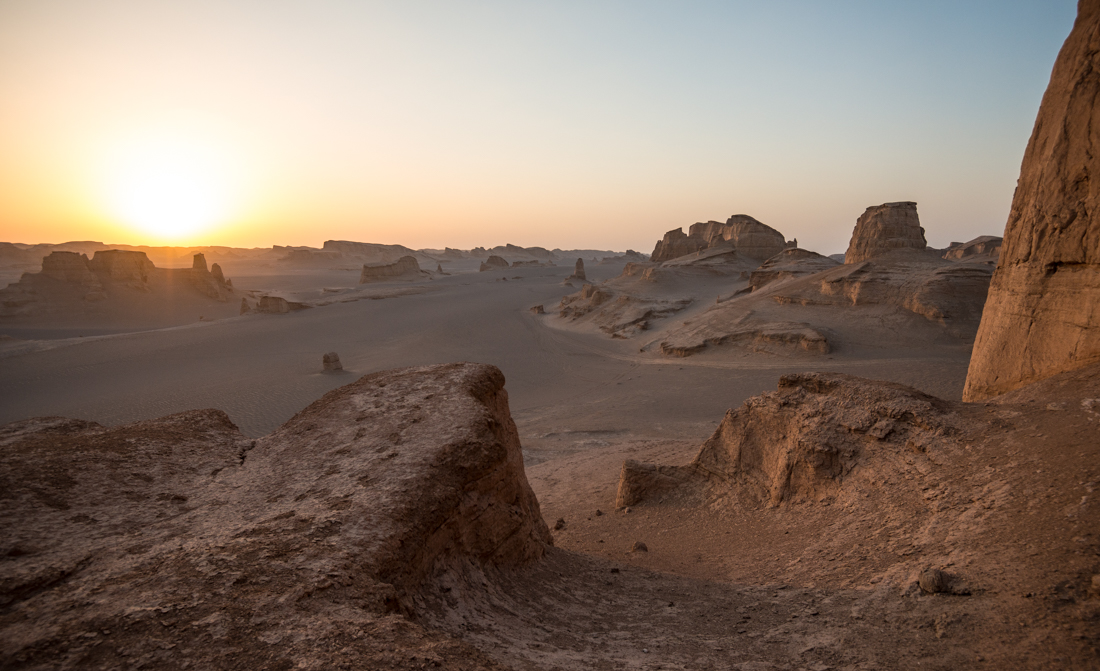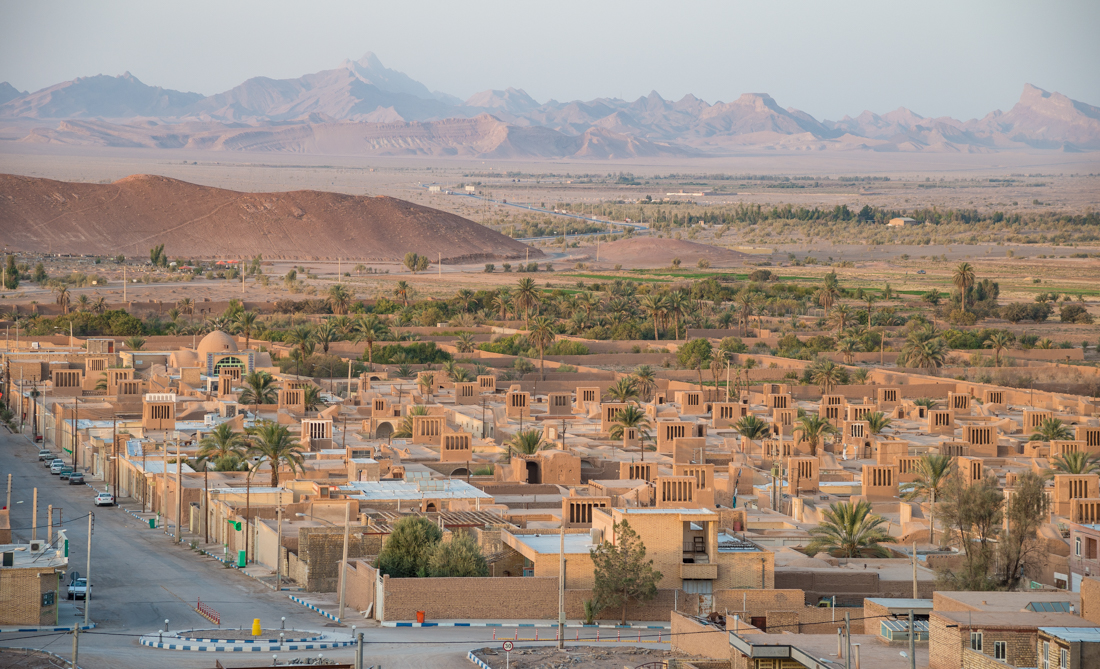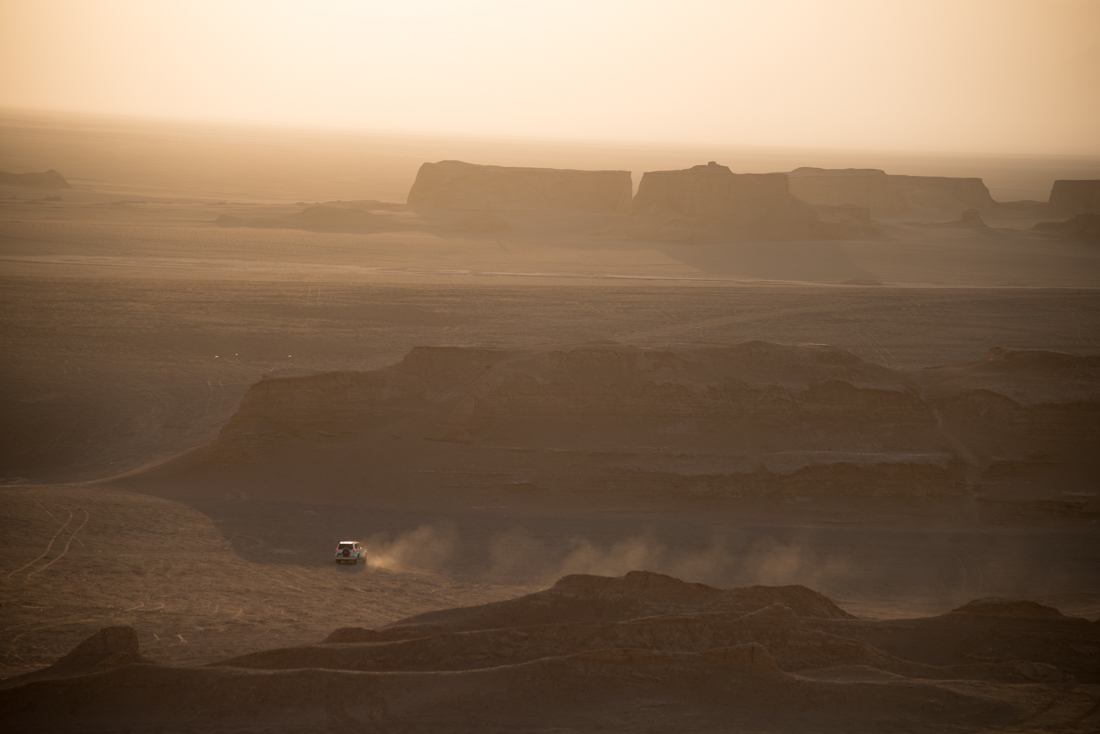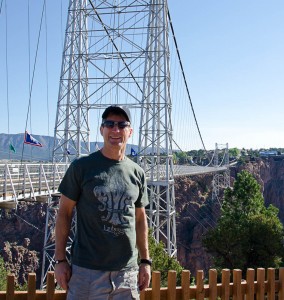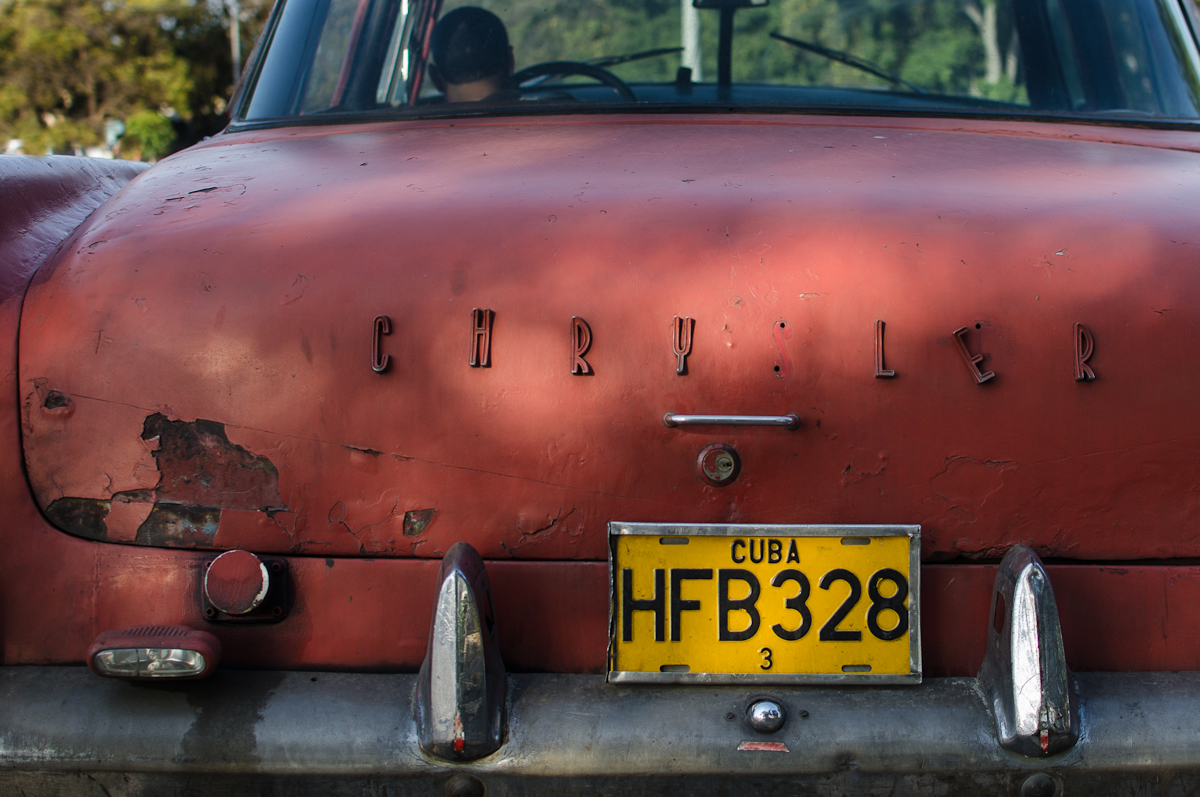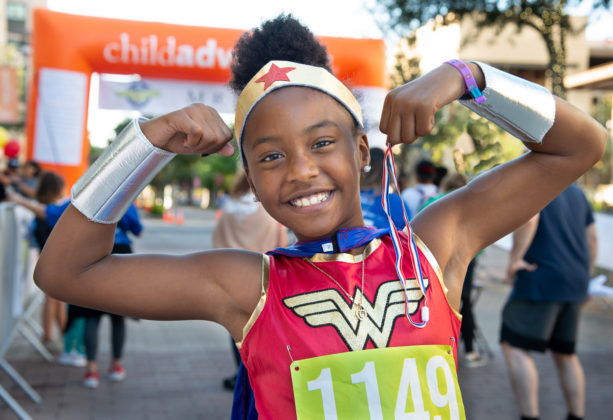If you want to see the sights of Iran, you’ll spend a lot of time traveling through the desert. But sometimes, the desert itself is the attraction — both for striking scenery and interesting folks. I spent one night in a small town in the scrubby deserts, one in a mountain village, another at the edge of a vast sand-dune-and-rock-mesa desert, and another in a hillside tent with with a few dozen sheep and goats penned up 15 feet away.
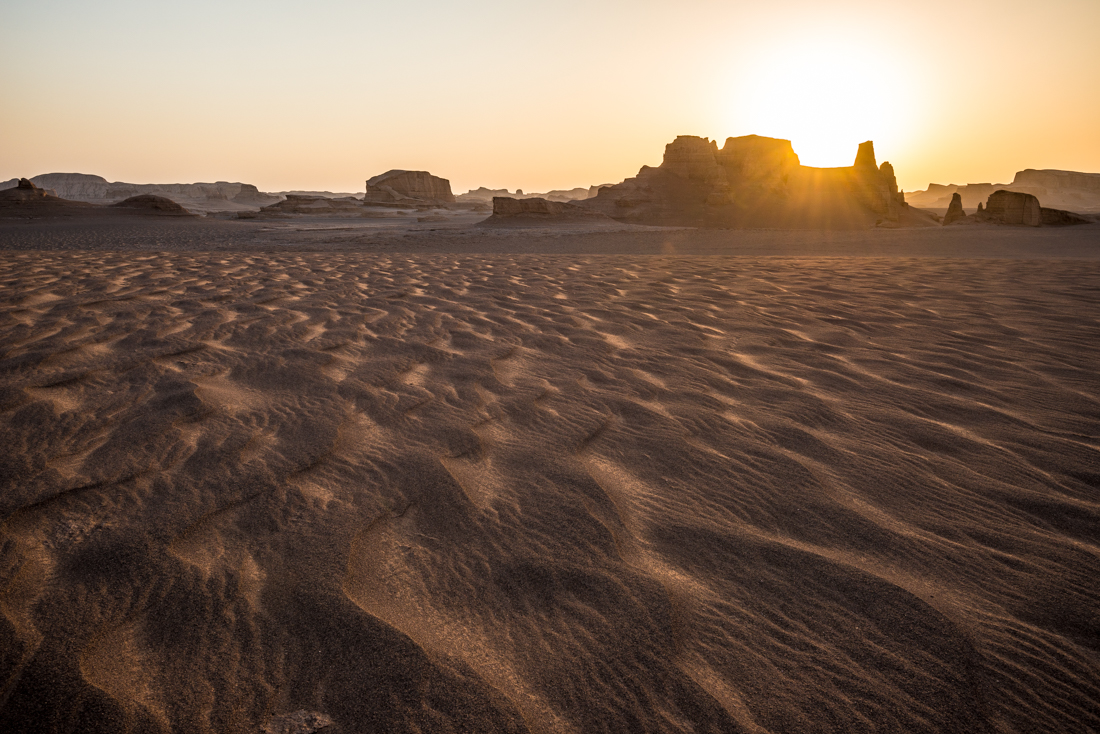
Sunrise in the Lut Desert. Its precise location is “a long damn ways from the major cities of Iran.” It goes on like this for a hundred miles or more. The things you see in the background are natural (not man-made), and most of them are less than 100 high and easy to climb. In this area near the highway, it was tough to keep the dune buggy tracks out of the picture.
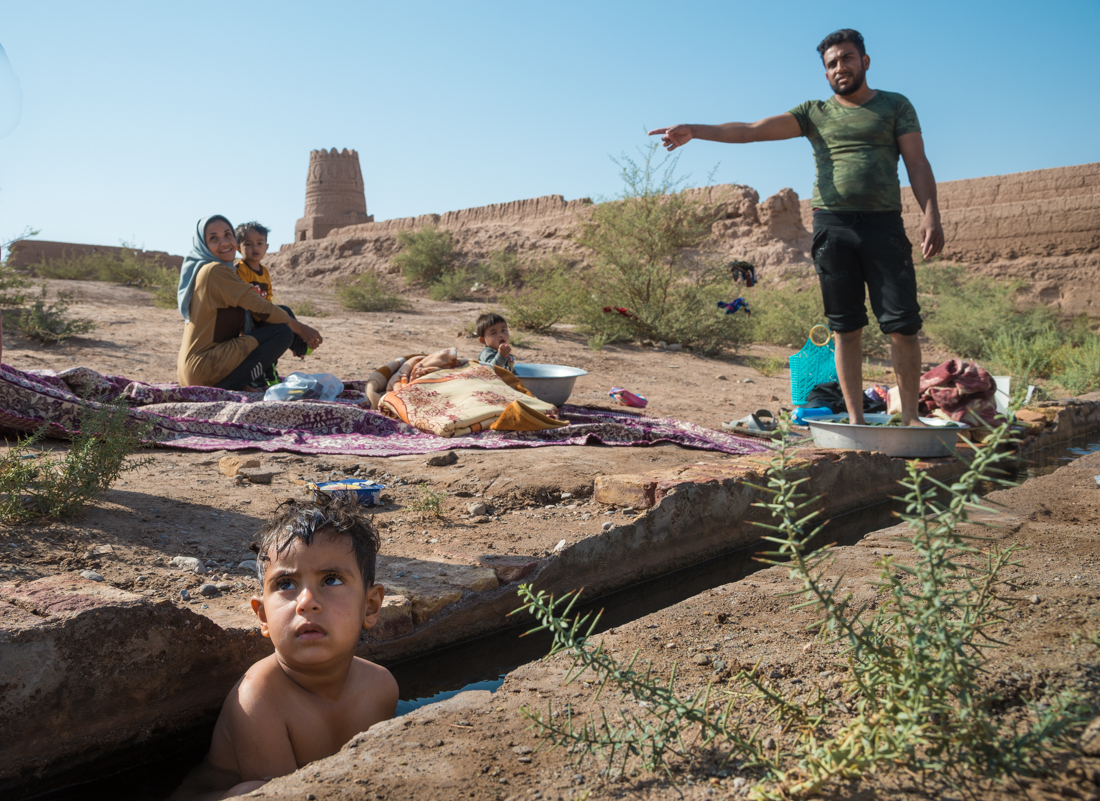
Kids bathe while dad stomps the laundry. A spring-fed canal through an old caravansarai in Shafiabad, near the Lut Desert.
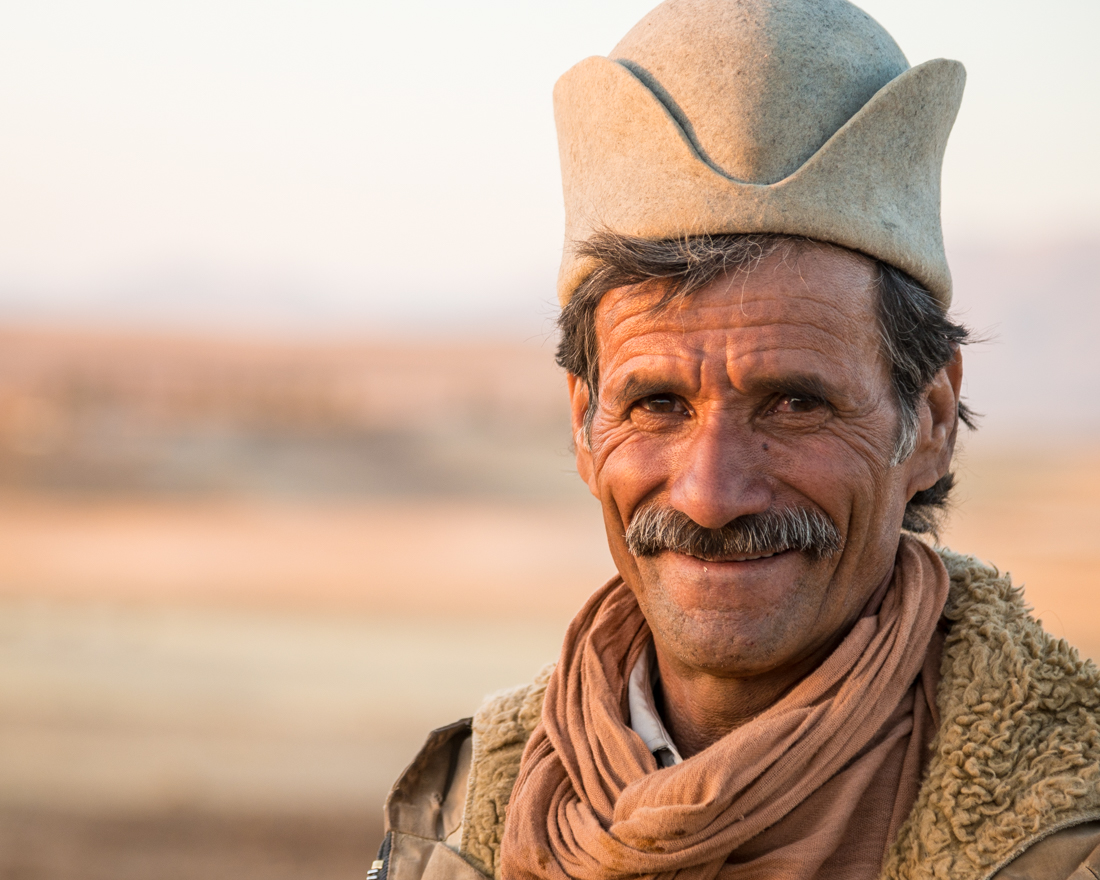
Ali Mardan-loo, my nomadic sparring partner turned friend-for-life. I get a B-minus for this portrait: his herd of sheep and goats are on the hillside behind him, but I didn’t have my lens set correctly (this is f4.5 at 120mm) so the distant flock is too blurry to be recognized. I fixed it in other versions of this picture, but Ali’s facial expression wasn’t as good.
A high point of my trip through the desert was a stay with a family of traditional nomadic shepherds. I guess they’re “modern traditional” shepherds, because they actually owned a small car, but their primary lifestyle was one of sheep and goats and tents and meals cooked on campfires as they moved their herds cross country for seasonal grazing. At night, nine of us slept side-by-side-by-side in an open-sided tent about 30 feet by 10 feet.
The patriarch of the group was Ali Mardon-loo. Ali was about my age; his two sons were helping out with the herds and with his American guests while his wife cooked a mountain of 18-inch round flatbreads over an outdoor campfire. Ali spoke Turkic — not Farsi as most Iranians speak, and certainly no English. One of his sons could translate from Turkic to Farsi, and our guide could translate Farsi to English. His other son — who’d been sent off to boarding school at age twelve — spoke all three languages and could translate directly.
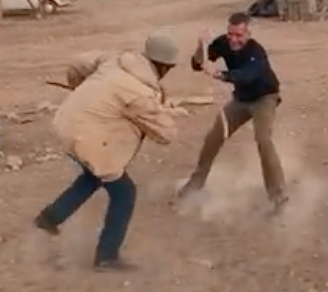 I saw Ali and another herder briefly playing a game using their shepherd staffs — a lot like our sport of fencing, except that it’s all below the waist and the goal is just to whack your opponent in the shins. He said something to his youngest, who looked at me and said “He’s looking for a challenger if you will play.” Uh-oh. I figured I was about to get whacked, but I had one shred of hope: I took a semester of fencing when I was in college and it seemed like maybe some of the basic principles would translate to help me survive a round of Turkic Nomad stick fighting.
I saw Ali and another herder briefly playing a game using their shepherd staffs — a lot like our sport of fencing, except that it’s all below the waist and the goal is just to whack your opponent in the shins. He said something to his youngest, who looked at me and said “He’s looking for a challenger if you will play.” Uh-oh. I figured I was about to get whacked, but I had one shred of hope: I took a semester of fencing when I was in college and it seemed like maybe some of the basic principles would translate to help me survive a round of Turkic Nomad stick fighting.
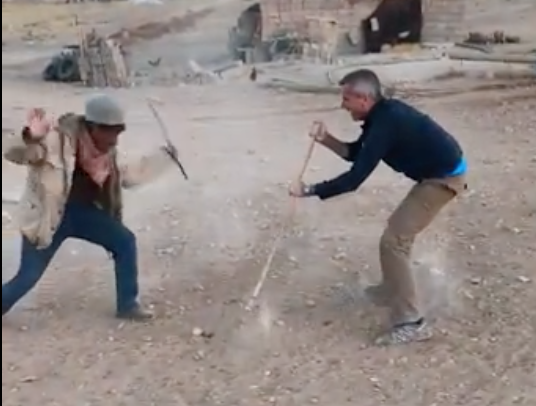 For better or worse, within a minute or so, I delivered a smack to Ali’s shin. I guess I’d “won,” but given my inexperience, I hadn’t gauged well how hard or fast to go. It made an awkwardly loud noise. I was mortified that I’d just whacked and maybe injured our gracious host, but after Ali hopped around and recovered for a minute, he smiled ear to ear and shook my hand. For the rest of the evening, we were buddies (notwithstanding the zero overlap in our language capabilities). At dinner, he sat across from me and declared to everyone that we were best friends. He kept putting more and more food on my plate. He gave me a bracelet his wife had hand made, and ceremoniously announced that he was giving me a lamb (apparently this is a high honor, but Happily a only symbolic one; I never had to take custody of any ovine.) He dubbed me an honorary member of the Mardon-loo clan, much to the amusement — and exclusion — of his other five American visitors. Never again will I underestimate the bonding potential of a good whack in the shins.
For better or worse, within a minute or so, I delivered a smack to Ali’s shin. I guess I’d “won,” but given my inexperience, I hadn’t gauged well how hard or fast to go. It made an awkwardly loud noise. I was mortified that I’d just whacked and maybe injured our gracious host, but after Ali hopped around and recovered for a minute, he smiled ear to ear and shook my hand. For the rest of the evening, we were buddies (notwithstanding the zero overlap in our language capabilities). At dinner, he sat across from me and declared to everyone that we were best friends. He kept putting more and more food on my plate. He gave me a bracelet his wife had hand made, and ceremoniously announced that he was giving me a lamb (apparently this is a high honor, but Happily a only symbolic one; I never had to take custody of any ovine.) He dubbed me an honorary member of the Mardon-loo clan, much to the amusement — and exclusion — of his other five American visitors. Never again will I underestimate the bonding potential of a good whack in the shins.
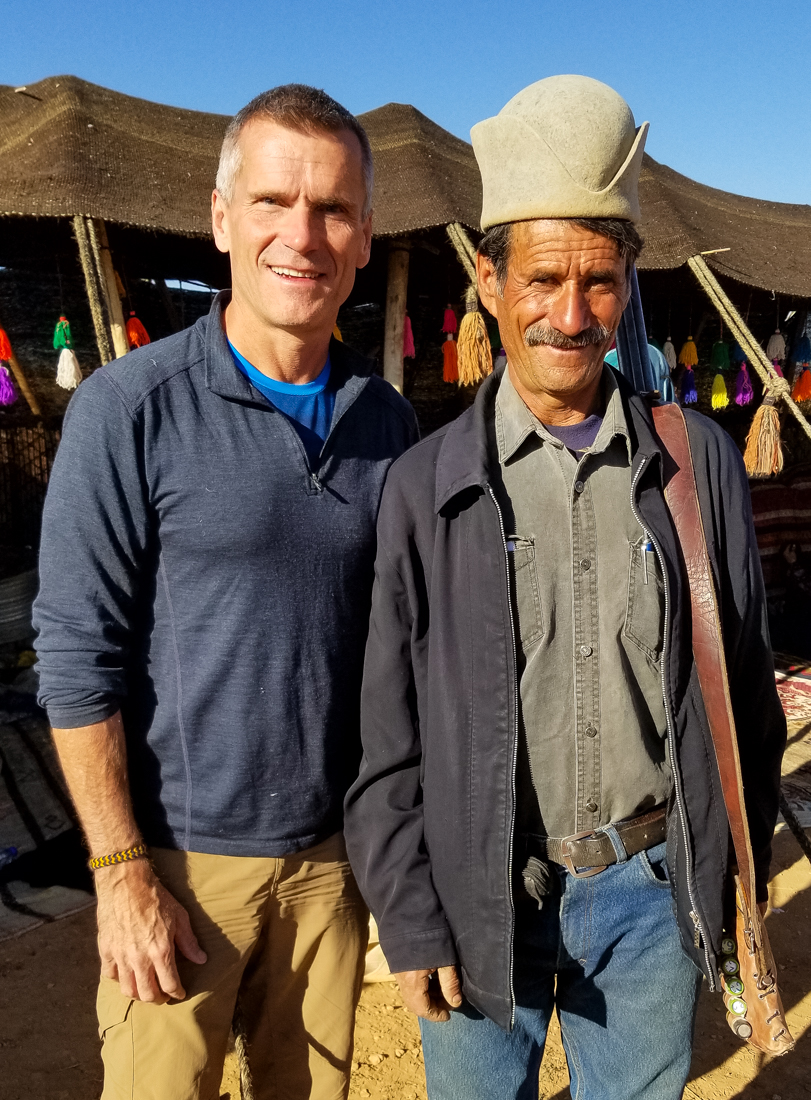
Me and Ali. He’s posing with his rifle — a prized possession usually prohibited in Iran. As a shepherd, he’s allowed one gun to fend off wolves. I’m wearing the bracelet his wife made. Everyone kept suggesting that he and I looked alike??
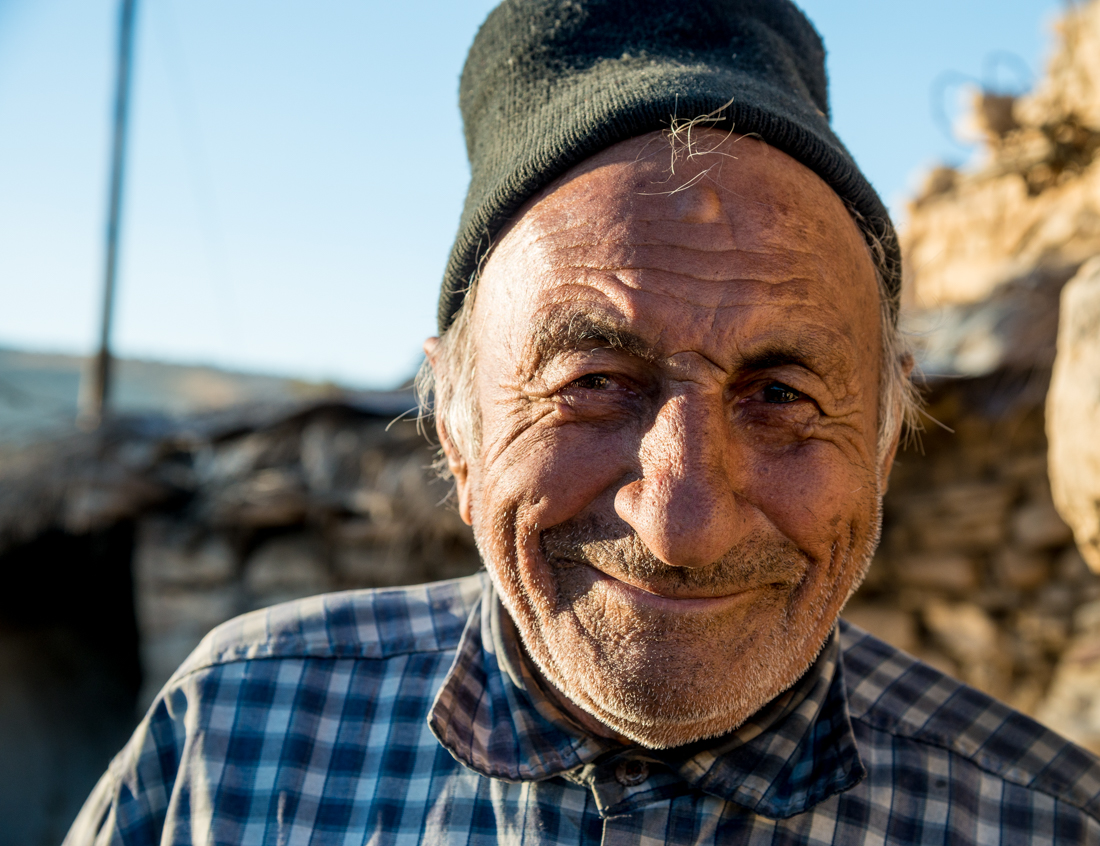
A friendly face in Pereshkaft village near Shiraz, Iran. This old guy was sitting with a buddy on the roof of a hillside house, watching the sunset. They seemed like they were eager to share all kinds of stories with us, had we spoken a common language. Women in this village were very reluctant to be photographed; one of them told us she’d like to but her husband wouldn’t approve.
